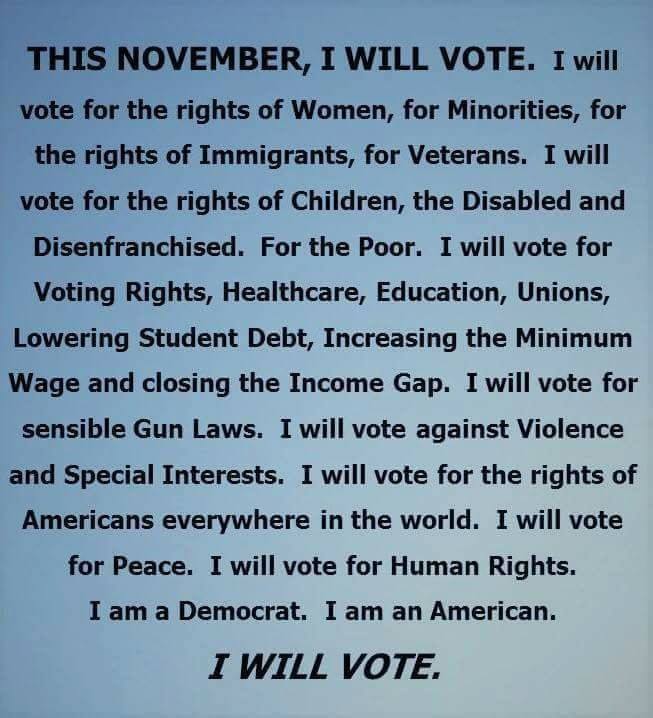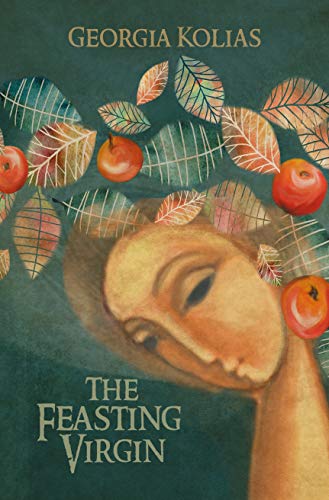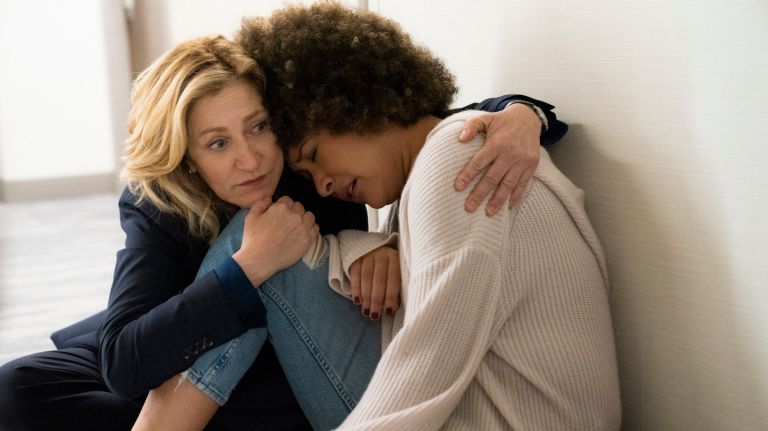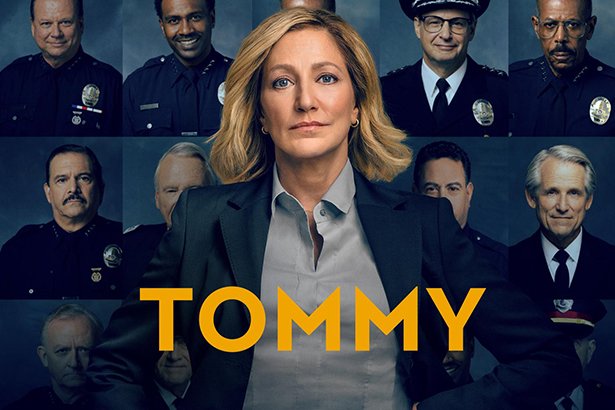I am an old woman with few regrets and a shaky memory. I invented a theme, a thread that runs through my family history, to amuse myself. I admit that I use faint reminiscences to give comfort in my old age, to soothe loneliness, and to stir up outrage among any remaining relatives. While the younger generation may read it and laugh, I hope that the reaction of my own generation includes indignation and thoughts of lynching. If you want the bees to come out, poke the hive with a stick.
So I poke and prod at the secrets and lies that are the shaky foundation of a finer background than my family actually lived.
I know the real foundation is strong. I know because I am strong, and I want everyone to know where that strength came from. That real source of will is where the true pride of the family should hang its hat.
Those of my age will imagine the hat as one of frills and lace worn by Southern ladies of refinement and background. I picture it as an old gray Fedora with sweat lines and the dirt of hard work staining it, making it darker than the dark-skinned, silent men who wore them, darker than the family will ever admit.
Family legends say that the men of the Morgan family were genteel and distanced from the hard labor of growing crops, removed from the humble beginnings of their ancestors, who arrived on the American soil every bit as early as DAR predecessors, even if subsequent events excluded them from such company, in fact if not in their own perceptions.

My daddy was one of those lean, silent men. I can barely remember him without a hat. His hair was black and very thin. Mama would sit him in a straight back chair in the kitchen with a towel around his neck and cut his hair and shave him. I have that image in my head. I realized as an adult that Mama probably shaved him on a Saturday or Sunday morning after he had indulged in a night of heavy drinking. Daddy’s hands probably shook too much to trust him with a razor.
As a child, I remember playing with that razor. It was the classic single blade with a silver holder that opened like a draw bridge. I would play with the turn screw at the bottom, watching the two halves raise and lower. Daddy had a pair of wire rim glasses he kept in a hard case with felt on the inside. Mama kept them in the bottom of her bedroom chest of drawers. The ears and wings of those glasses were flexible wire. You could bend them into any shape and straighten them out again. I never saw Daddy wear them. I wonder if they were issued to him in the Army.
Daddy served four years during World War Two, all of it in the Panama Canal Zone, an essential stronghold for the Allies, and a prime target for the enemy. He got promoted to TEC Four, with sergeant chevrons. I believe he was a cook. I have pictures of him in uniform. In one photo, he is standing outside the officers’ club, playing his fiddle. In another, he is sitting, with his elbow propped up on a pith helmut.
Dog Days
I must have asked my mama every year why the sultry days of summer are called dog days. She said it was because it got so hot that the dogs crawled under the house and were good for nothing. Actually, the ancient Romans named the period from around July twenty fourth through August twenty fourth. It had to do with the Dog Star Sirius. In my part of the country, that’s southern Alabama, dog days seem to start around July fourth and last until after Labor Day. It is a time when it is so hot and muggy that the air you breathe seems heavy, not crisp and clean the way the air is in the spring, and in the fall, and in what little winter we have.
So according to my personal history, we are still in the midst of dog days. I can remember the dogs under the house, because sometimes I crawled under there with them. They dug little bowls to sleep in. I tried it, and the dirt was cooler when you dig down into it.
Dog days was also the time you had to watch out for hydrophobia. The Romans believed this was a time of evil, and sacrificed a dog to appease Sirius. They thought the Dog Star made animals crazy. I know for a fact that dogs do get crazy, start walking sideways, and foam at the mouth. They mostly call it rabies today, but the ancient Romans named it hydrophobia, which means dreading water. If you ever see a dog that won’t take a drink in the hottest part of summer, and it starts twitching and walking like it can’t control where it’s going, then that’s a mad dog.
I am not opposed to shooting a mad dog if it will ward off craziness. Looking back at my family history, I would do better to skip the canine sacrifice and shoot the crazy person. Lord knows there’s been enough crazy folks in my line of descent. Mama said once, “If you can’t kill ‘em with kindness, just shoot ‘em.”
I am old now, prone to ailments and debilitations, but also filled with the beautiful truth that I can do just about any damn thing I want to, because I’m old. In Mama’s older years, she carried a little pistol in her purse, a five shot revolver, .22 caliber.
“It’s not funny.” That’s what I have been saying to everybody my whole life, whenever something happens to me that could not happen to anybody else, whenever I say something and I am deadly serious but people laugh anyway. Like the time I fell up the stairs and dislocated my left thumb. That’s not funny, it really happened. I was going up the stairs into work, with a mug of coffee in one hand, my purse in the other, and who can walk in high heels, really? Some things are just not funny, and it’s mean, or at least rude to laugh.
Then there are some things that happen that are so mixed up and not right that the only thing you can do is laugh, I guess. Like the time Mama pulled out her gun. I didn’t know they made pistols that little. It looked tiny enough to be a cigarette lighter, like the art deco table lighters they made back when. I had a collection of those once, lighters set in fine crystal, lighters shaped like golf balls in silver, table ornaments made to match with fancy cigarette cases kept on coffee tables when everybody smoked. It was once fashionable and sophisticated.
When Mama whipped that little .22 five-shot pistol out of her purse, I thought she was pulling my leg, that it was really one of those cigarette lighters. But it was real. I was driving at the time, and I almost ran right off the road.
At one time, when cars were still a novelty and a luxury, people went for Sunday drives. That what Mama and I were doing, I assumed, until the pistol brandishing and the dancing on graves started. Mama bears grudges for a long time. The grave was that of a long ago schoolmate of Mama’s, a girl who had been mean to her, I guess. When we found it, out in the woods, in an untended cemetery on a bluff overlooking the Alabama River, Mama fairly cackled and did a jig right on the grave after I read the headstone to her.
Here’s why people laugh when I tell them about the pistol. Forgetting the context of the story, they laugh because Mama couldn’t see, due to macular degeneration. So the fact of her carrying a sidearm for my protection is what made them laugh. It made me break out in a cold, clammy sweat.
Now that Mama is gone, I often wonder what happened to the little pistol she kept in her purse along with her daddy’s old pocket knife, her nail clippers, tweezers, cigarettes, lipstick, wallet, Certs, and all the other things that I would sometimes play with when I was a child. I should have kept on inspecting the contents into my adulthood, apparently. That gun had white fake pearl grips. It was cute. Wish I had it now to add to my collection of ugly table lighters. No one would know the difference.
In my old age the love and yearning for shooting has returned, and I can indulge myself. I wish I had Mama’s little gun, just for sentimental reasons, but I like to shoot. I can sit on my back porch right now and shoot up a storm. I retired to the country, and almost everybody around here has weapons, for shooting snakes and other dangerous creatures, and in case any mad dogs come around. This is more likely than you think. A lot of people don’t get their dogs spayed, and they have puppies, and none of them get rabies vaccinations. There is a chance that I might get to shoot a mad dog still.
I must state that Mama used a hoe to kill snakes. She sharpened her own hoes, and you could slice your finger open with one. It worked nicely for chopping the heads off of rattlers.
I asked for a .22 rifle every birthday and Christmas. I told long stories about how I could shoot squirrels, or turkeys, and thus contribute to the family provisions. Of all my brothers and sisters, Daddy must of thought I was the one most like Mama, so he wisely resisted every time I begged.
There was a wildness in me. I was always running in the woods, playing at cowboys and Indians. I was influenced by reading all of Daddy’s Western novels, Zane Grey and Louis L’Amour. Like some kids yearn for a horse, and read things like National Velvet and then grow out of it, I read all those skinny paperback novels of the West, and desperately wanted a firearm.
When we went to town, I would go straight to the ten cent store and look at the cap guns and holsters. That was what I got for Christmas. I wore that gun belt all the time when I wasn’t in school. They never made one real enough to suit me. When I was allowed to have a BB gun, we had battles in the woods, shooting each other indiscriminately. Back then, we didn’t have air rifles or any sort of propellant like they sell now, so it didn’t hurt very much. If you got hit with a BB, it might have stung a little, and you wouldn’t want to shoot anybody in the eye. We would come home with little red marks all over. That was a lot of fun.
Brooding Irish

We called my mother’s mama MoMo. I don’t know why. MoMo was dark-skinned. Her palms were pink. That was the “Indian” blood showing. She was a Lynn before she married, and the Lynns and the Huckabees were all dark-skinned. Dark skin, dark eyes, dark mood, like they all were holding onto to some tragedy from generations of sad, beaten people. Like the Irish, they were quick to laugh and drink and sing, in the face of unending struggles to make it through one more planting season, one more harvest, one more sad generation of poverty and lost hopes.
Escape to America, fetch up in the deep piney woods of southwest Alabama, settle along the slow-moving Tombigbee, and proceed then to live as impoverished and beaten down as ever they did in the old country. With a bit more freedom, a bit more land earned through homesteading, an astonishing program where the government gave them land instead of taking it away.
That mix of brooding Irish and long-suffering Indian created a strain of displacement and disenfranchisement, including a sort of self-deprecating humor and low expectations that runs through all my people today.
Artissma Hill, she was, the first white lady born on American soil, the matriarch who married into this stew of dissatisfaction and high humor. Artissma was my great-great, great grandmother on my daddy’s side, the Morgans. She was also my great grandmother, three more greats added, on my mother’s side. Artissma had two daughters, one, Margaret (Granny Mag she was called) who married a Morgan, and one, Annie, who married a Huckabee. Morgans married Huckabees, Lynns married Huckabees, so Artissma is my grandmother on both sides of the family. Somehow, I am related to myself.
Some say the term black Irish came from blood mixed with invaders, Vikings or Spanish, who settled in Ireland and raised black-haired offspring. Others say the term came from the Irish masses who emigrated after the eighteen forty seven potato famine, caused by a blight which turned the potatoes black. I believe the term refers not to ancestral strains or blighted potatoes but to the gloomy, morose mood so many Irish seem to have. I tend toward a dark view of life myself.
Mama always maintained that the brown eyes and skin came from the Indian blood in us. I think Mama engineered more facts than she knew. A hard woman who lived a hard life, and raised nine children, she sought romanticism the same way others seek the truth. When she looked at her brood, half of us blue-eyed, half of us dark, she must have wanted us to feel the dignity of the “Noble Savage”, the patience of the decimated tribes, rather than the alcoholic doom of the Irish. As it happens, we have both. So we drink and we sing and we despair.
I wonder what Artissma Hill, she was, would have thought of us Morgans, mixed blood, mixed heritage. Would she have clung to the notion of imagined wealth, cotton, slaves, and land? Would Artissma, born in the Carolinas in seventeen eighty, acknowledge the dark side of her mongrel descendents?
The branch of the Morgans who settled in north Alabama kept their bloodlines true. They would have been favored, I’m sure. What would the genteel Artissma think of the bare-footed, loose-limbed, squirrel-and-catfish-eating southern branch of her family tree? I think she might have snipped and pruned us right out.
MoMo used to dip snuff. Back then, I’m talking a long time ago now, it came in nice juice glasses, smooth on the outside with swirls on the inside of the jar. My Aunt Swannie, she chewed tobacco. They used the same brand, Beechnut Sweet Tobacco and Snuff. The tobacco came in a foil pouch with diagonal red and white stripes. Sometimes my mama would dip or chew with them, but she mostly smoked Pall Malls. And sometimes, they would give me a little dip to put between my lip and gum. I actually liked chewing the sweet tobacco, cut into soft strips that you could work around in your mouth until it was just right, moist enough and giving off a tingle. It was fun to work up a spit. If the men chewed tobacco, it would be from a compressed block of shredded stuff, not sweet like my Aunt Swannie’s. They would whittle a little slice off the two inch square, chew on it a while to soften it up until they got a comfortable wad in their jaws.
We would all be sitting outside under the trees where it was cooler, in the deep shade. We brought the kitchen chairs, ladderbacks, and put them right in the yard. It didn’t seem as hot to me then, not as hot as the grown up women made it seem. They swatted flies, fanned themselves, and occasionally they would spit to the side. Once in a while, MoMo would call out, “You young ‘uns git out of that road,” pronouncing “road” with two syllables, like “ro-ad.” Our mothers were happy to leave the child-watching to their mother for a while. It must have been hot, and dry, because I still recall watching the glob of tobacco or snuff juice hit the ground, and the way it formed edges all the way around, with the powdery dust trying to build a dam, a ring of dryness around the wet blob. Usually, the dry dam worked, and the tobacco juice wound up changing from dark brown wet stuff to a gray dusty circle on the ground.
I never knew my Aunt Swannie’s real name until long after I was grown. You’d think I would have been more curious. I just thought that Swannie was her name. It kind of made sense, because my grandma’s real name was Birdie. Mama told me Aunt Swannie’s real name. One of those boys’ names they turn into a girl name. My mama had one too. Mama’s name was Earline, and Aunt Swannie’s name was Geraldine. Mama said they started out calling her Duck when she was a baby because she was fat and waddled like a duck when she walked. But MoMo wouldn’t let that name stick, because Aunt Swannie had a slight hump in her back, and MoMo thought a nickname like Duck might cause her some trouble when she started school. She re-nicknamed her Swannie, and the bend in a swan’s neck matched perfectly with the curve in Aunt Swannie’s back. I thought they might have agreed to the switch because of the expression, “Well, I swannie,” which translates to “I never heard of such as that.” And Aunt Swannie could make you think that way about five times a day.
Aunt Swannie was simple-minded, and I mean that in the best possible way. She had a simple soul, and a sweet outlook on life, and never believed or said anything mean about anyone.
I remember those sneaky tastes of snuff and tobacco, and I always associate that sweetish, old, musty smell with my grandma, Birdie Lynn she was, before she married Carl Buckalew.
I like to believe that I never got into trouble unless one of my mean cousins visited. My mother is one of six siblings who all in turn produced a bounty of children, not all of the same quality. Like my cousin Carol Anne, with an e, who wanted to be called Caroline, rhymes with lime. She was sneaky mean, pretty manners in front of the grownups, but always the first one to suggest something to do with lying, stealing, hiding, pinching, or some other nasty behavior I would never indulge in if left on my own. I distinctly recall one visit, where we kids hung around the adults just long enough to be shooed away, which we took to imply vast freedoms as long as we stayed out of sight and nobody got hurt. Carol Anne first separated us out from the younger kids, as smoothly as an old cowhand cutting calves from the herd. I believe her talent for this lay in the fact that even the toddlers recognized her as crazy mean.
Next she would suggest something like, pull down your panties, and then I will. Let’s crawl in through the window and get cigarettes out of your mama’s purse, which we did, and she also took a dime, I think. Somewhere along the sneaky time together, she managed to bring pain into it, pinching with fingernails to see who could stand to receive the reddest marks without crying, or something along those lines. There would be some risk involved, as in the thieving of cigarettes. I dare you to run down this steep hill as fast as you can, at the bottom of which is a small creek and huge brambles of briars, blackberry vines with thorns as vicious as roses.
When you accept a dare, you can’t then say it was anybody’s fault that you wound up bleeding, scratched, and wet. Carol Anne knew that. In her sneakiness and meanness, she clung to those singular childhood codes of honor like a Supreme Court justice. We were the same age, but Carol Anne seemed older, at least in her motivations, which were inexplicable to me, with my simple way of looking at things. If you have a guest, you play whatever she wants to play, and if she is are crazy enough to stir up hornets’ nests, then you just have to run very fast, and hope the visit ends soon, while secretly praying that your cousin should get caught, just once.
I remember good things too, like the adults sitting on the front porch talking and smoking, dipping and spitting, while we kids ran through the yard in an afternoon thunderstorm, sliding on the grass, splashing in puddles that dried up almost as soon as the rain did. I remember running, never walking, playing until dark, and then running some more in crazy circles catching fireflies.
What I don’t like to recall is getting punished for doing some of Carol Anne’s crazy stuff, while she stood by her mama and didn’t get punished. Mama knew I only did those things when Carol Anne was around, and she only spanked me to shame her sister into switching Carol Anne, but that never happened. After the company left, Mama would be nicer to me to make up for being mad at her sister.
I can still smell the afternoon rain, that peculiar whiff of dust turning back to dirt, the rising smell of green as leaves and flowers drank in the water, and I can hear the gurgle of it streaming off the tin roof of the porch in a sheet that hid the grownups from view. We set out buckets to catch the rain water, so we wouldn’t have to haul water from the creek. So that must have been before we dug the well. I still can’t decipher whether it was before or after Jack the mule died.
What I am thinking of is probably several visits combined into one, so when the mule died wouldn’t be any sort of point of reference to a single afternoon where all these things happened. Though I can’t be sure that all of it didn’t happen exactly this way, on each visit, the sameness of them all making it seem like one long, hot, humid, rainy afternoon, with lowering skies and distanced adults and bare feet slipping, sliding in mud and green grass, and catching fireflies. I can sit and watch the fireflies now, on my own back porch, and they remind me that my pursuits were always simple, and it took me all these decades to get back to it.


 Swashbuckling doesn’t begin to describe this compelling, fast-action sequel to
Swashbuckling doesn’t begin to describe this compelling, fast-action sequel to 

























